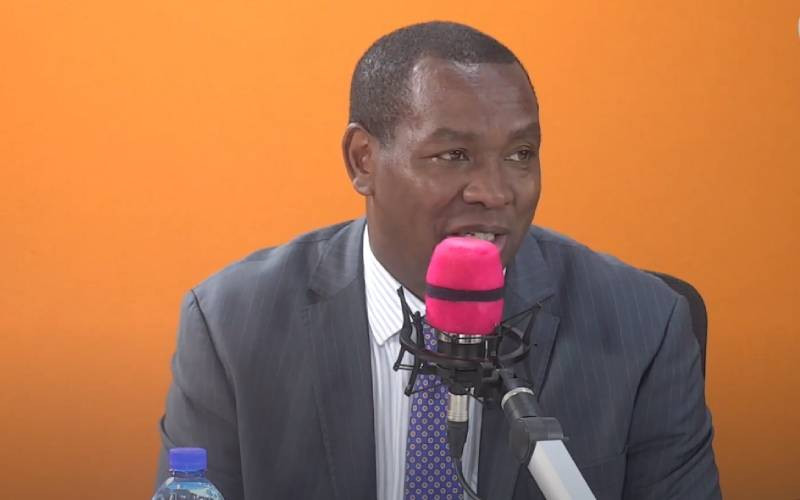
Kenya Revenue Authority (KRA) Chairman Ndiritu Muriithi during an interview on Spice FM on October 9, 2025. [Screengrab]
Kenya Revenue Authority (KRA) Chairperson Ndiritu Muriithi has accused commercial banks of denying Kenyans the benefits of falling inflation by failing to lower lending rates.
This comes despite the Central Bank of Kenya (CBK) cutting its benchmark rate eight consecutive times, with the most recent to 9.25 percent, according to the Monetary Policy Committee’s (MPC) review announced on Tuesday.
Speaking on Spice FM on Thursday, October 9, Muriithi said banks’ preference for lending to the government instead of the private sector was stifling economic growth.
“Kenyans are stating facts when they say the government is telling them inflation is low, but they are not feeling it in their pockets,” said Muriithi.
“When inflation is low, CBK lowers interest rates so that companies can borrow to expand. That’s not happening. The latest lowering of the CBR was trying to signal and push banks to lend more to the private sector,” he added.
Muriithi averred that banks collect deposits at low rates from customers but lend the same funds to the government at much higher rates.
He urged the government to use technology to borrow directly from citizens, cutting interest costs and pushing banks to channel more funds into the private sector to spur growth.
“Banks take deposits from Kenyans and pay one or two per cent on the savings. They lend the deposits to the government at 15 per cent,” he said, adding, “I think the government should leverage technology and borrow directly from Kenyans. Mobile money platforms move about three times our GDP per year. At this rate, Kenyans can lend to the government half of what it needs for the whole year in an hour.”
The economist further said government data showed encouraging signs of economic recovery, citing a rising Purchasing Managers’ Index (PMI), increased hiring in the private sector, and growing credit to businesses.
He added that the KRA was not under undue pressure to meet revenue targets but urged the Treasury to set realistic estimates when projecting collections.







